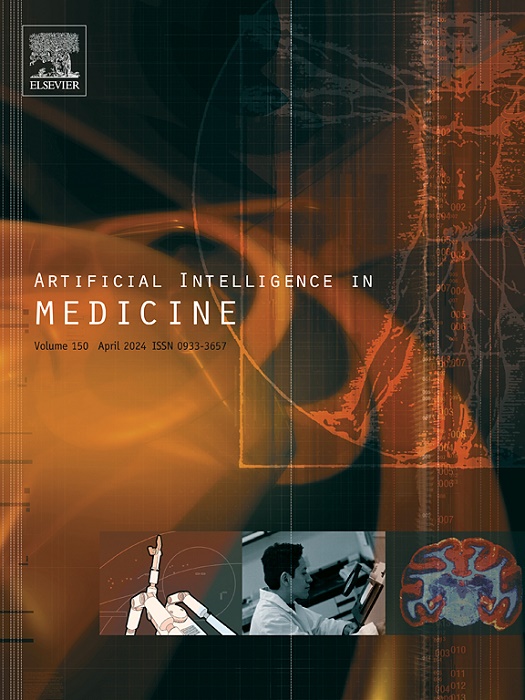Probabilistic emotion and sentiment modelling of patient-reported experiences
IF 6.2
2区 医学
Q1 COMPUTER SCIENCE, ARTIFICIAL INTELLIGENCE
引用次数: 0
Abstract
Patient feedback is necessary to assess the extent to which healthcare delivery aligns with public needs and expectations. Surveys provide structured feedback that is readily analysed; however, they are costly, infrequent, and constrained by predefined questions, limiting a comprehensive understanding of patient experience. In contrast, the unstructured nature of online reviews and social-media posts can reveal unique insights into patient perspectives, yet that very lack of structure presents a challenge for analysis. In this study, we present a methodology for interpretable probabilistic modelling of patient emotions from patient-reported experiences. We employ metadata-network topic modelling to uncover key themes in 13,380 patient-reported experiences from Care Opinion (2012-2022) and reveal insightful relationships between these themes and labelled emotions. Our results show positivity and negativity relate most strongly to aspects of patient experience, such as patient-caregiver interactions, rather than clinical outcomes. Patient educational engagement exhibits strong positivity, whereas dismissal and rejection are linked to suicidality and depression. We develop a context-specific probabilistic emotion recommender system that predicts both multi-label emotions and binary sentiments with a Naïve Bayes classifier using topics as predictors. We assess performance with nDCG and Q-measure and achieve an F1 of 0.921, significantly outperforming standard sentiment lexicons. This methodology offers a cost-effective, timely, and transparent approach to harness unconstrained patient-reported feedback, with the potential to augment traditional patient-reported experience collection. Our R package and interactive dashboard make the approach readily accessible for future research and clinical practice applications, enabling hospitals to integrate emotional insights into surveys and tailor care to patient needs. Overall, this study provides a new avenue for understanding and improving patient experience and the quality of healthcare delivery.
病人报告经验的概率情绪和情绪模型
要评估医疗保健服务在多大程度上符合公众需求和期望,患者反馈是必要的。调查提供易于分析的结构化反馈;然而,这些检查费用昂贵,不常见,并且受到预先确定的问题的限制,限制了对患者经验的全面了解。相比之下,在线评论和社交媒体帖子的非结构化性质可以揭示对患者观点的独特见解,但正是由于缺乏结构,对分析构成了挑战。在这项研究中,我们提出了一种从患者报告的经验中对患者情绪进行可解释概率建模的方法。我们采用元数据网络主题建模来揭示来自护理意见(2012-2022)的13380例患者报告经验中的关键主题,并揭示这些主题与标记情绪之间的深刻关系。我们的研究结果表明,积极和消极与患者体验的各个方面密切相关,例如患者与护理人员的互动,而不是临床结果。患者教育参与表现出强烈的积极性,而解雇和拒绝与自杀和抑郁有关。我们开发了一个上下文特定的概率情绪推荐系统,该系统使用Naïve贝叶斯分类器使用主题作为预测因子来预测多标签情绪和二元情绪。我们使用nDCG和Q-measure来评估性能,并获得了0.921的F1,显著优于标准情绪词汇。这种方法提供了一种具有成本效益、及时和透明的方法来利用不受约束的患者报告反馈,并有可能增加传统的患者报告经验收集。我们的R软件包和交互式仪表板使该方法易于用于未来的研究和临床实践应用,使医院能够将情感洞察整合到调查中,并根据患者需求定制护理。总的来说,本研究为理解和改善患者体验和医疗保健服务质量提供了新的途径。
本文章由计算机程序翻译,如有差异,请以英文原文为准。
求助全文
约1分钟内获得全文
求助全文
来源期刊

Artificial Intelligence in Medicine
工程技术-工程:生物医学
CiteScore
15.00
自引率
2.70%
发文量
143
审稿时长
6.3 months
期刊介绍:
Artificial Intelligence in Medicine publishes original articles from a wide variety of interdisciplinary perspectives concerning the theory and practice of artificial intelligence (AI) in medicine, medically-oriented human biology, and health care.
Artificial intelligence in medicine may be characterized as the scientific discipline pertaining to research studies, projects, and applications that aim at supporting decision-based medical tasks through knowledge- and/or data-intensive computer-based solutions that ultimately support and improve the performance of a human care provider.
 求助内容:
求助内容: 应助结果提醒方式:
应助结果提醒方式:


